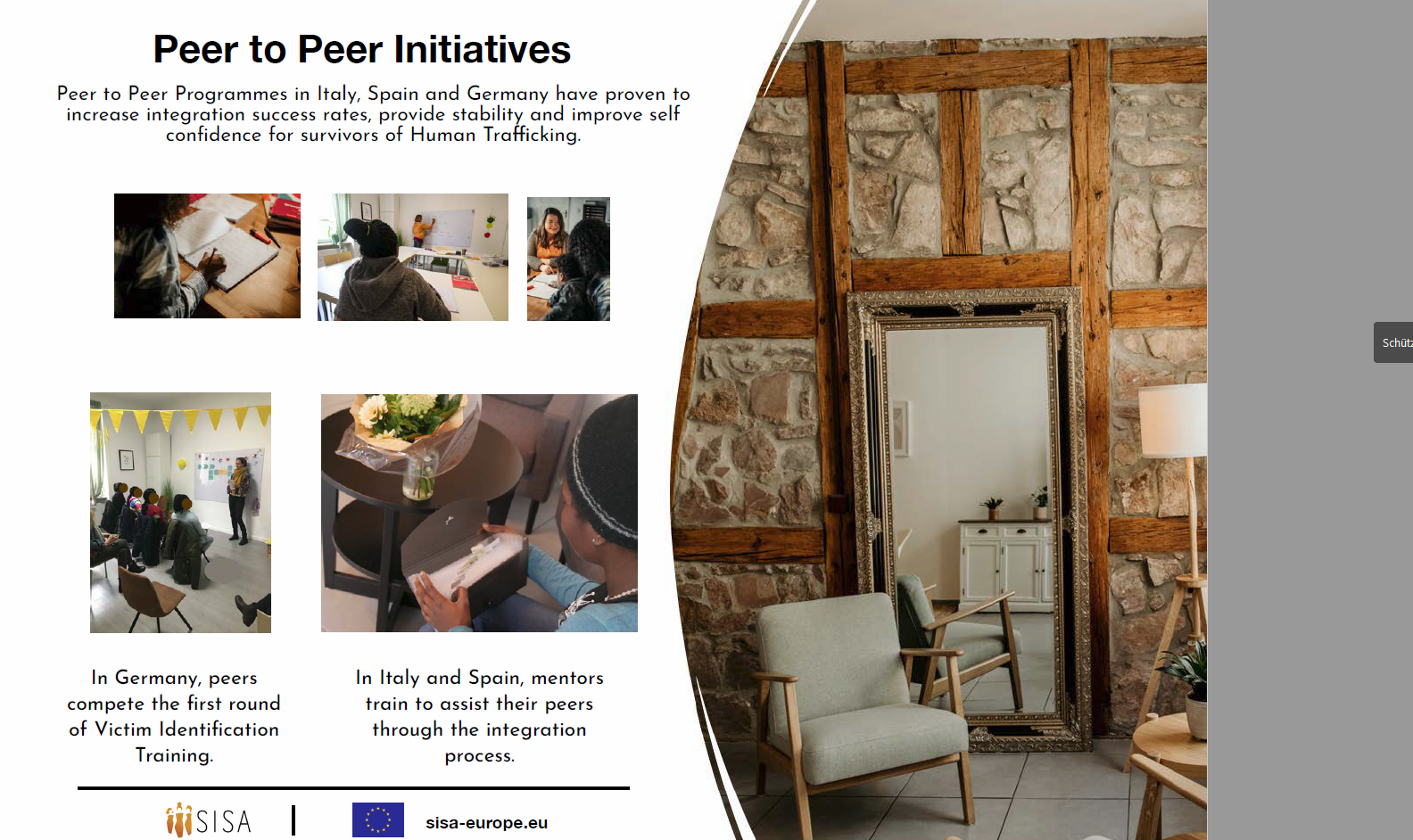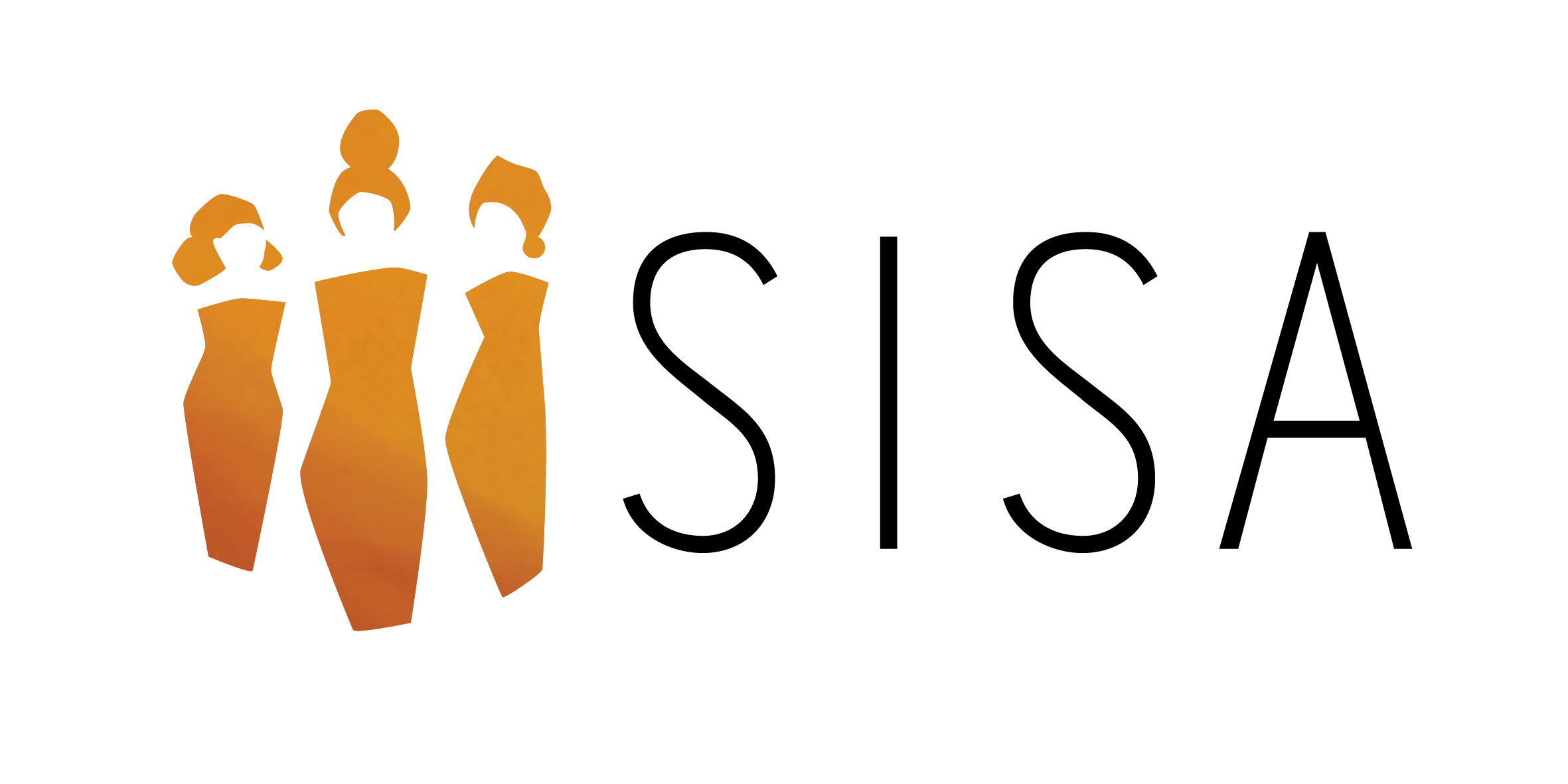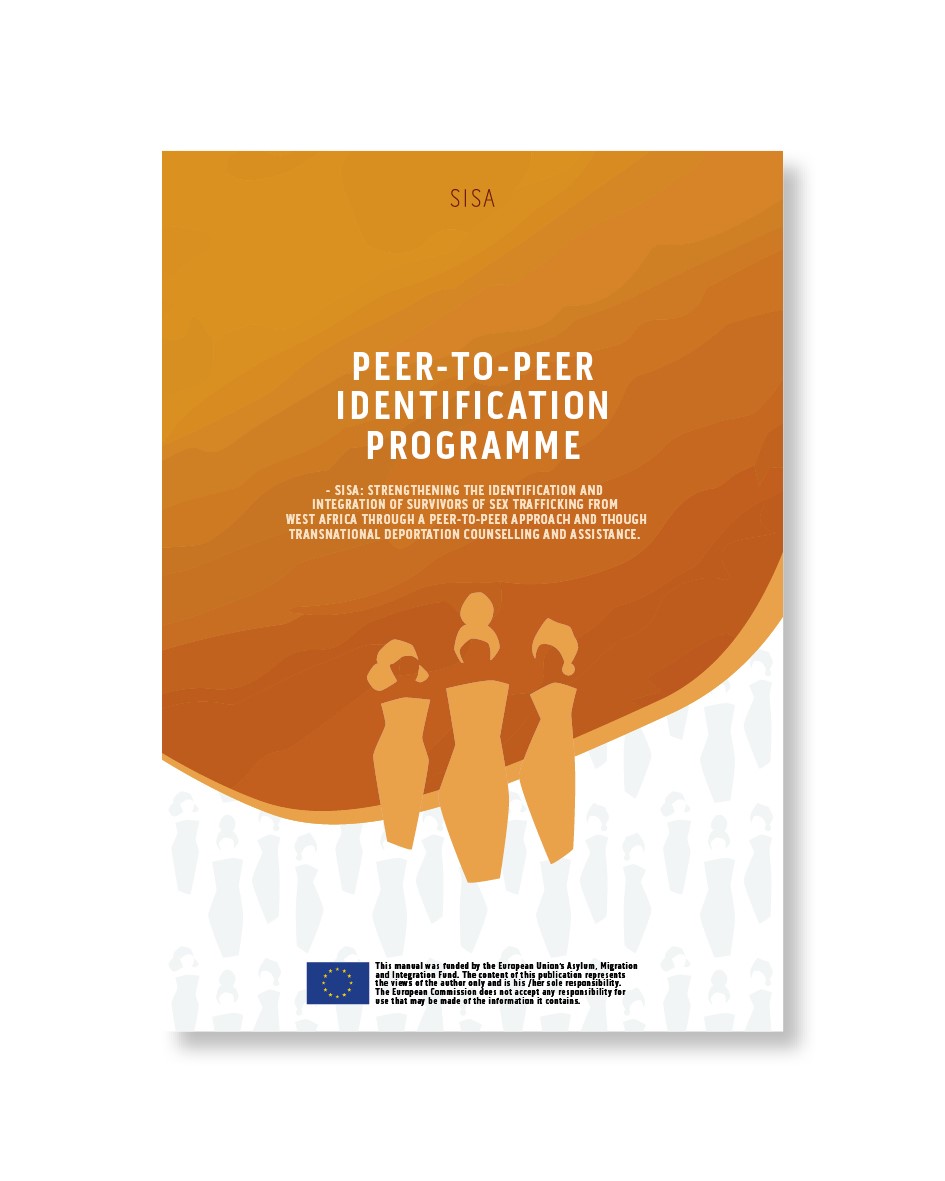 PEER-TO-PEER IDENTIFICATION PROGRAM
PEER-TO-PEER IDENTIFICATION PROGRAM
Through the Peer-to-Peer Identification initiative within this project, a team in Germany developed and implemented a training course to equip formerly identified West African SoTs to identify other SoTs among their peers. The programme was designed for 3 phases of implementation including training courses, participation in victim identification initiatives and ongoing Supervision to ensure continued support is provided to participants throughout the duration of the programme. Feedback from Peers who participated in the programme was positive, reflecting empowerment with self-efficacy, self-determination, and self-competence, further encouraging their personal integration and recovery process.
Outcomes of the programme also included a higher rate of purported victims of trafficking receiving information about their rights and getting connected to professional social workers who were able to assist them in reporting their victimisation within the asylum-seeking process.
In addition, victims of trafficking were informed of the services provided by local NGOs that specialise in victim-centred care.

 INTEGRATION THROUGH PEER-MENTORING
INTEGRATION THROUGH PEER-MENTORING
In Italy and Spain, team members collaborated to develop a programme which focuses on the integration of West African survivors into a host society through a peer mentoring approach.
Participating mentors were determined based on criteria such as evident psychological stability and a willingness to multiply their knowledge and experience for the purpose of assisting other female West African SoTs through the process of integration. Programme participants reflected how the knowledge gained supported deeper integration for all survivors involved. The mentors also reflected an increase in self-confidence, noting that their participation had a positive impact on their personal healing process.
The implementation of the Peer Mentoring Integration Programme was designed to be delivered in two phases; a training phase (6 months) and an active phase (12 months).
The teaching material used in the training phase focuses on best practices for providing psycho-social and practical support through the integration process. To ensure the overall well-being of the participating mentor, lessons were included to cover topics such as setting personal boundaries, personal security, trauma and secondary traumatisation, healthy communication of one’s life story, understanding the role and limitations of a mentor, teamwork with social workers and other volunteers, and cultural diversity.
During the active phase, mentors begin to provide psychosocial and practical support to newly identified female West African SoTs through a guided integration process. By utilizing the information and skills gained through the training, mentors are able to support the integration of their Peers while receiving ongoing support as needed from the social worker who trained them.
In the links, field reports on the progress of the project can be found. They are especially geared towards communicating concrete challenges that face third country national SoTs as they pursue integration in their host countries and the mitigating actions taken to address these challenges. These reports are meant to be experientially based accounts.
> Field Report Spain Nov 2021 > Field Reports Spain Apr 2022 > Field Report Italy Dec 2021 > Field Report Italy Apr 2022
'This program gives me the opportunity to do the things that I’ve always wanted to do: to be able to help people who have the same stories, cultures, difficulties that I have. Listening to the story of the other peers and how they dealt with the trauma I experienced years ago, when I was in trouble and I thought it was my end, is a great help to me. Thanks to the trusted people who helped me, I can now help other women. Even if it is just a person, for me it will be a great experience.'
(Patricia , 25 years, Italy)
'I was concerned that this experience would make me have flashbacks, but I am not living anymore in the past. I want to use my experience to listen and help other women who are experiencing similar processes to mine.'
(J., Spain)
'Approaching someone to offer help is so important. Even if the probability that they need help is slim. You never know their situation, so it’s always good.'
(Programme Participant, Germany)


